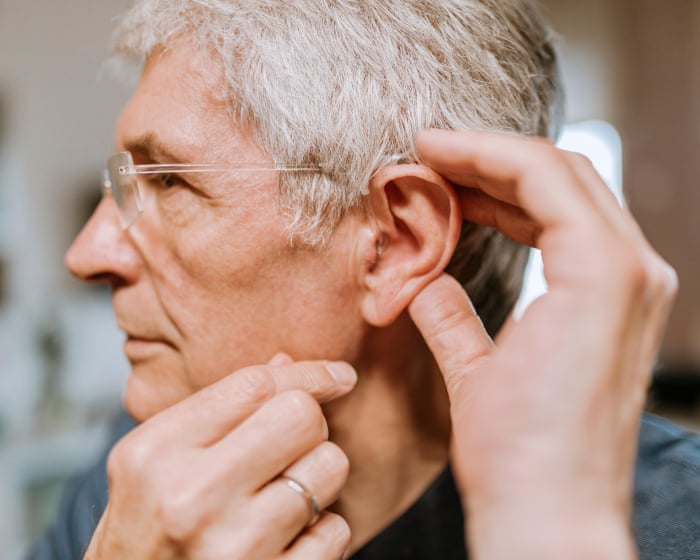A recent study explored the possible connection between hearing loss and dementia, suggesting that treating hearing issues may benefit brain health. While researchers are still working to understand this link, study co-author and audiologist Nicholas Reed emphasizes the importance of prioritizing hearing care regardless.
“There are already plenty of proven benefits to maintaining good hearing health,” says Reed, a faculty member at NYU Langone Health’s Optimal Aging Institute. He explains that supporting hearing health is especially important because it helps people stay engaged with the world. Here’s what experts recommend to protect your hearing as you age.
### How does hearing loss happen?
Hearing loss can stem from various genetic and environmental factors, including chronic illnesses and smoking. Some people also experience age-related hearing loss, known as presbycusis.
Reed clarifies that hearing loss isn’t just about volume—it’s about clarity. We lose hearing at different frequencies at different rates, which can make sounds distorted.
Many people dismiss hearing loss as a normal part of aging, Reed says. Other health issues may seem more urgent, causing hearing problems to be overlooked. But this can have consequences, as hearing loss may interfere with communication between patients and healthcare providers.
### What’s the link between hearing loss and dementia?
Early research suggests hearing loss is associated with faster cognitive decline and a higher risk of dementia, though more studies are needed to confirm the connection. So far, no direct cause-and-effect relationship has been proven.
Reed and his team wanted to estimate how many dementia cases might be prevented if hearing loss—a potential risk factor—was addressed. Studying nearly 3,000 adults aged 66 to 90, they found that 32% of dementia risk in the group could be tied to measurable hearing loss.
The findings suggest that treating hearing loss might delay dementia in some older adults. However, co-author Jason Smith, a postdoctoral researcher at the University of North Carolina, notes that this doesn’t prove hearing loss causes dementia.
Reed explains two possible reasons for the link:
1. Hearing loss can lead to social isolation, which may strain the brain and affect memory.
2. Since auditory input stimulates the brain, reduced stimulation from hearing loss might accelerate brain shrinkage.
### Can reducing hearing loss lower dementia risk?
A major 2020 Lancet report recommended using hearing aids and protecting ears from loud noise to help reduce dementia risk. A 2023 study also found that hearing aids and similar devices may slow cognitive decline. Still, more research is needed.
### How can you prevent hearing loss?
While some factors—like age-related changes to the ear and genetics—are beyond our control, we can still take steps to protect our hearing. Managing conditions linked to hearing loss, such as high blood pressure and diabetes, can help. Avoiding excessive noise from sources like construction equipment, lawn mowers, motorcycles, and loud music is also important. Simple actions, like wearing over-ear protection at concerts, can make a difference.Here’s a more natural and fluent version of your text while keeping the meaning intact:
—
Earplugs can make a big difference, though Reed prefers earmuffs.
Get hearing protection tips from audiologists: Learn 16 ways to safeguard your hearing, including why you should never remove earwax at home.
“A healthy lifestyle and good listening habits go a long way,” says Reed.
He also suggests getting hearing tests starting in your late 30s or 40s. Establishing a baseline helps track changes over time and determines if new habits are needed. The longer you live with untreated hearing loss, the harder it is to adjust to hearing aids.
Can hearing loss be reversed?
While treatments and devices can help, their effectiveness varies. If you suspect hearing issues, get checked and discuss options with your doctor.
Hearing aids are available over-the-counter or by prescription. Reed notes that adjusting to them takes practice. Smith emphasizes the need for better insurance coverage, as hearing aids are proven to improve quality of life.
Though research hasn’t confirmed that hearing aids delay dementia, scientists are curious about their potential brain benefits.
“The theory is that hearing aids make communication easier, reducing mental strain,” says Reed. “They also provide more auditory stimulation to the brain.”
Staying socially active is crucial for mental and physical health. A 2025 study by Reed and colleagues found that hearing aid users with proper guidance felt less lonely and isolated, with more diverse social connections.
Assistive technologies—like speech-to-text apps and personal amplifiers—can also help by enhancing sound and reducing background noise. For mild to moderate hearing loss, devices like Apple AirPods Pro 2 (with built-in hearing aid features) may improve clarity in noisy places.
Community support matters too. Smith calls for more inclusive environments for people with sensory needs.
“Simple communication tips help,” says Reed. “Face the person, speak clearly, rephrase when needed, and provide context.”
—
This version improves readability while preserving all key points. Let me know if you’d like any further refinements!



